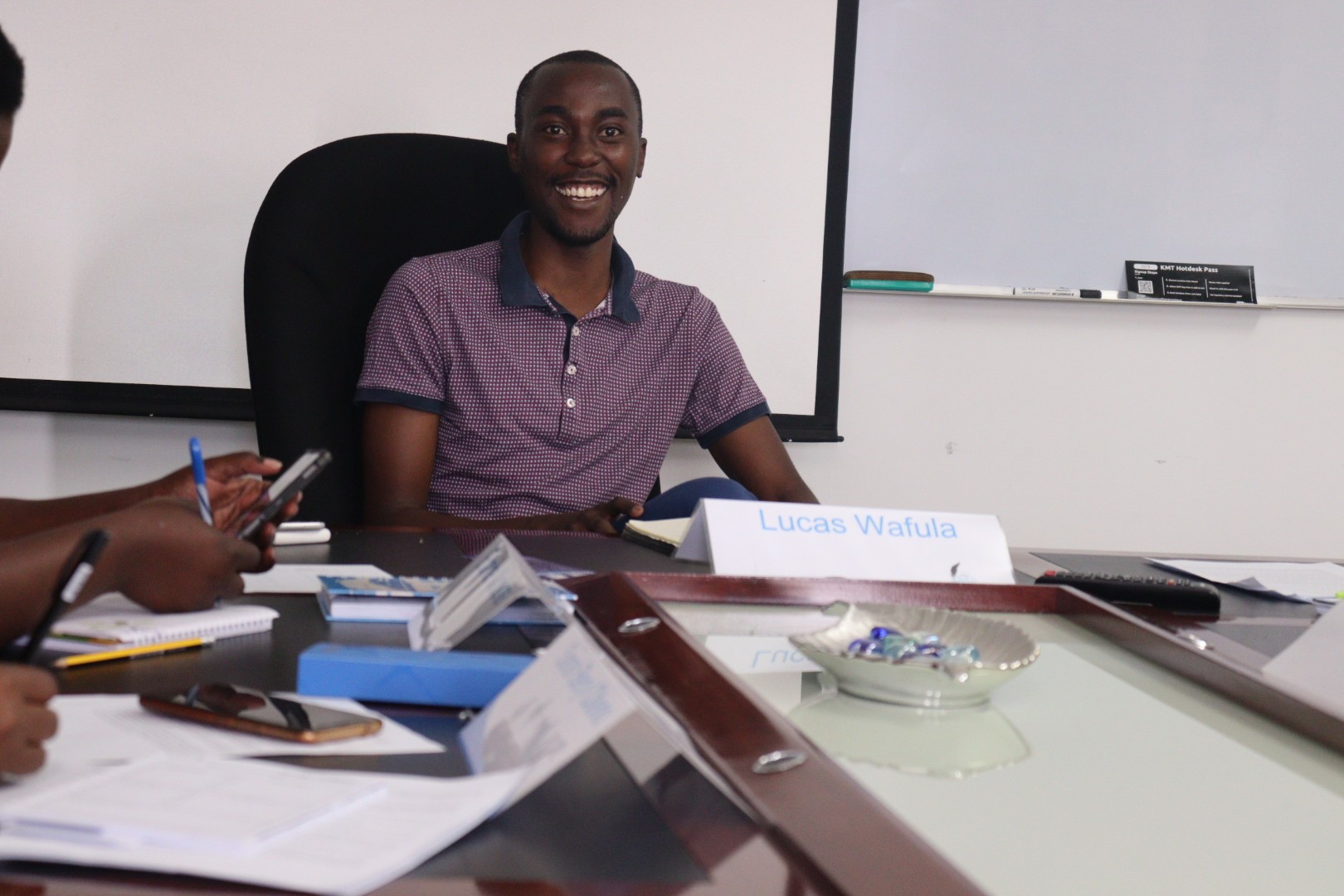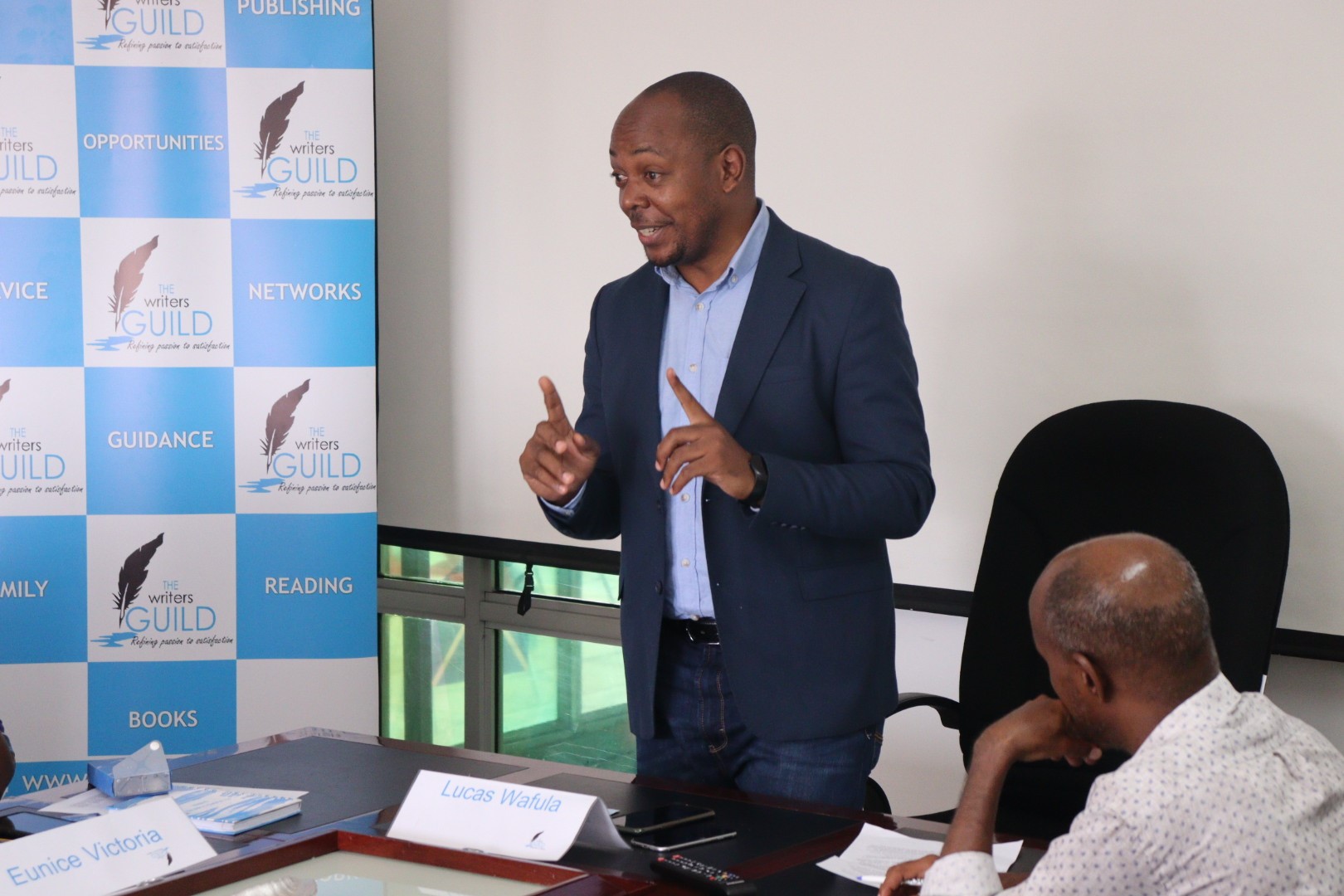By Phill Ibsen, On the Saturday of February 15, 2020.
As we sat in class contemplating, smiling and staring into each other’s faces while catching up on how the week was, we couldn’t help to anticipate who the faculty for the day would be – a Professional Editor. I was tensed. Everyone was tensed but tried as calmly as possible to keep their cool. In my mind, I saw a figure of two horns on his forehead, with a double-edged sword holstered in his hands. A sword to cut and chop off a writer’s words of prose if not the very hands that they use for writing. In my mind, an editor could be the devil himself, a Writer’s worst nightmare. An editor could be the only reason that you’ll never call yourself a writer. Go back home and do whatever your boring life entailed.
All that changed when Mr. Lucas Wafula – the Managing Director of Booklyst Press Limited and a former Publishing Director at East Africa Educational Publishers – walked in with such an aura that drew us in. He started with a not so funny joke. We laughed and eased up to him like chicklets folding unto the warmth of a hen. If this was the way that serial killers use to lure their victims, then we were trapped and he was the master of his craft. For a moment I thought to myself that the devil had forgotten to send his favorite demon and sent a rogue one instead. This one was a lifesaver. This one we could negotiate with. This one could set my soul free.
He was witty and candid. He had no horns. No sword but just a penknife of modest honesty whether your writing was good or not so good, whether your writing would cut to publishing or not; because at the end of the day, an editor got to do his work. He says that there’s no story when there is no conflict and any form of writing, whether fiction or non-fiction, are forms of creative writing, and the latter shouldn’t only constitute mere facts and statistics. He suggested that writers should have a way with words of narration that creates a spark in a reader’s mind into a crescendo of orgasmic experience.
If writers are creators then perhaps the editors are like the Holy Spirit, guiding a Writer’s creation to perfection. Every writer needs an editor, with or without horns or swords. A writer presents a sculpture unto him and he trims the edges to a masterpiece.
When the final product shall have been made, it would be unleashed to the world. The kind of world which is crazy and fast-paced with every thought, ideas, and currencies floating on digital keys. Gone are the days when writers would sit behind their desks and spend years on a piece of work and when they produced it every soul would flock the bookshops. It isn’t done that way in this century. Brian Nyagol – a young and charismatic individual, who is the Director of Brainverse Technologies and also a lifelong partner of the Writers Guild Kenya – will tell you as much when it comes to having a digital footprint. A writer has to be all over the digital platforms, but only those which works best for him. A writer has to engage in online discussions, a writer has to interact with the consumers of his product. The consumers have to be on the know-how on what’s coming next. They have to anticipate. For any creative who wishes to commit career suicide, will cease being on digital platforms. For that’s where the action is.

Three quick things though: 1. Never submit your first draft. 2. Always proofread your work. 3. Editors are not from hell. I hope that helps.
Phill Ibsen (Master of Descriptions) is an incubate member of Writers Guild Kenya.






1 thought on “Of editing without mercy and having a digital footprint”
Am impressed and keep writing phill ibsen am a big fan of your work